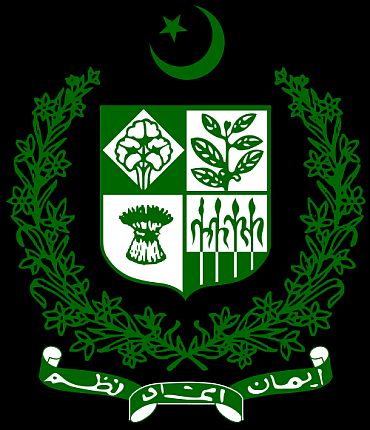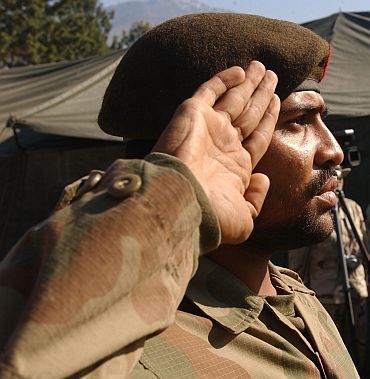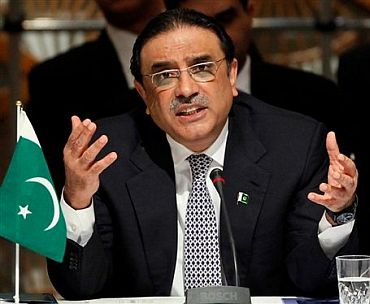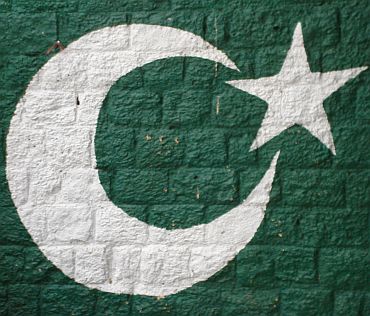Vicky Nanjappa
For Pakistan, it's a Catch-22 situation. Under pressure from the United States, it may have to chop and change the ISI set-up. But if it tinkers too much with the elite agency, Islamabad risks a more horrifying repurcussion. Vicky Nanjappa reports
As troubled times dawn upon Pakistan and its security agency Inter Services Intelligence, New Delhi has a lot to smile about.
While on the one hand the killing of Osama bin Laden and the forthcoming high voltage Tawwahur Rana trial has put the ISI in a spot of bother, Pakistan Prime Minister Yousuf Raza Gilani has stood up for the agency calling it the pride of the nation.
However, a major revamp of the ISI is on the cards. Indian agencies such as the Research and Analysis Wing and the Intelligence Bureau are keeping a constant watch on the developments across the border.
Sources say that Islamabad would like to show that it has acted on terror-tainted officers who have showed up on the United States radar.
The US has accused some ISI officers of shielding Osama. Also, the US chargesheet in the Rana case mentions the name of several officers of the agency.
...
ISI officials could themselves order attacks within Pakistan
The IB says that this does put the ISI and the Pakistan establishment in a spot of bother, but also adds that any drastic changes within the ISI can have horrific repercussions on that country.
The last thing that Islamabad would want is a rebellion within the ISI, which is extremely close to big terror groups in that country.
If the Pakistan administration is found to be making these sweeping changes at the behest of the US, the members of the ISI themselves could order attacks within their own country, IB officials point out.
The likes of Army chief Ashfaq Kiyani and ISI chief Shuja Pasha are the likely targets of the Pakistan establishment. The new faces in the ISI would be largely unknown ones who have not been dealing directly with groups such as the Al Qaeda and the Lashkar-e-Tayiba.
The real test would be the Rana trial
The name of Major General Isfandiyar Ali Pataudi is already doing the rounds to succeed Pasha.
A cousin of former cricketer Mansoor Ali Khan Pataudi, he is considered to be a liberal face of the ISI and is likely to step in to keep the heat low on the outfit.
Experts say, "Let us face it that Pakistan cannot do without the ISI and would do everything under the sun to protect it. It would be hard for anyone to prove any direct involvement between the ISI and terror groups on the basis of the Osama encounter. Pakistan too is sure that it would wriggle out of that situation."
"However, the real test would be the Rana trial. Rana will take the defence that he is not a terrorist and was working for the ISI, which is a national organization. As the trial progresses and the dots are joined, it would become almost certain that the ISI had used Rana to undertake terror activities."
The road ahead is a tough one
The name that will hurt the ISI the most is that of Major Iqbal. An ISI officer posted in Lahore in 2007, Major Iqbal had provided money to American terror operative David Coleman Headley as per the second chargesheet filed by the US.
An explanation regarding the antecedents of this man would be sought.
Sources say that Major Iqbal is the blue-eyed boy of both Kiyani and Pasha, and at any cost Pakistan would not want the trail leading up to these officers.
Pakistan will make the changes within the ISI before the trial is complete so that it could take the defence that the rogue elements, who had undertaken the operation without the knowledge of the establishment, had been ousted.
For the Pakistan government, the road ahead is a tough one. On one hand it will have to show the world, especially the US, that it is acting on some rogue elements in the ISI and on the other will need to prevent a backlash from its own premier security agency.





article